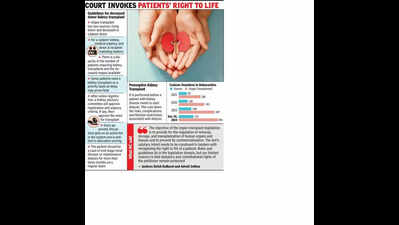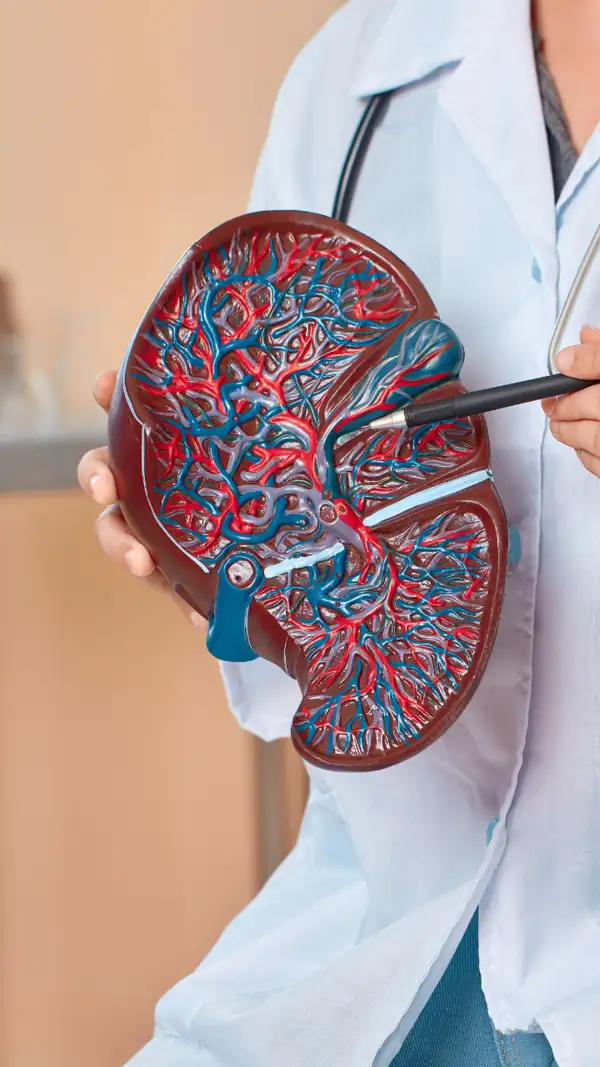- News
- City News
- mumbai News
- HC: Consider separate regn for future kidney transplant patients
Trending
HC: Consider separate regn for future kidney transplant patients
Mumbai: Invoking the right to life, the Bombay high court has asked the state and Centre to consider providing a separate registration facility for early-stage kidney patients who, in the future, would require transplant.
The idea, said the HC, is to ensure that the authority concerned has a ready list with necessary medical certification to simplify the procedure and obviate the need for paperwork when a patient is critical.
You Can Also Check: Mumbai AQI | Weather in Mumbai | Bank Holidays in Mumbai | Public Holidays in Mumbai
The order came in a plea filed by a Pune resident, questioning the "reasonableness" of guidelines governing human organ donations. The human need for an organ transplant is directly a facet of the right to life as guaranteed under Article 21 of the Constitution of India, observed Justices Girish Kulkarni and Advait Sethna in an April 30 order.
The 34-year-old petitioner raised a peculiar issue under a central legislation, the Transplantation of Human Organs and Tissues Act of 1994, of a pre-emptive kidney transplant, the bench said. With no suitable donor within his family, he sought registration for a cadaveric or deceased kidney transplantation. Though not on dialysis, he was Stage V of chronic kidney disease, he said.
The petitioner's counsel, Uday Warunjikar, said the authority — the Zonal Transplant Coordination Centre at Pune — rejected his plea as he did not fit the criteria of being an end-stage renal case on dialysis for three months. The Pune centre had referred to allocation criteria for deceased donor kidney transplant guidelines that regulate kidney recipient registration, listing and scoring system for a waiting list.
The petitioner sought judicial intervention, saying given his condition, he would need a donor in the future, and at that time, he ought not to face any prejudice or unwarranted ordeal of being made to wait in a long queue for want of timely registration. He invoked his right to life and said the fundamental constitutionally mandated right would include his right to receive an organ transplant, for which registration is essential so that in dire urgency, he is entitled as a timely recipient.
The guidelines cannot override the Act or Article 21 of the Constitution (right to life), was the basis of his plea. Warunjikar contended that the guidelines cannot adopt an unreasonable approach and should carve a mechanism for patients who, in the future, would be in imminent need of a transplant and have the necessary seniority then.
The HC heard the govt pleader Neha Bhide and Shehnaz Bharucha for the Union health ministry and National Organ and Tissue Transplant Organisation and said the guidelines cannot supersede the Organ Transplant Act, 1994.

About the Author
Swati DeshpandeEnd of Article
Follow Us On Social Media








